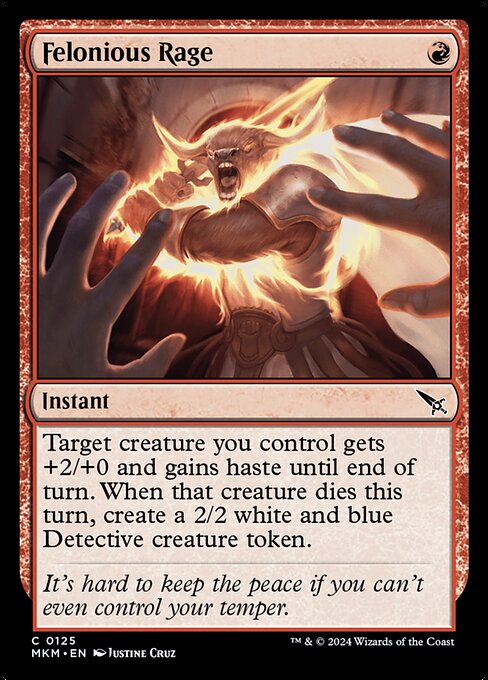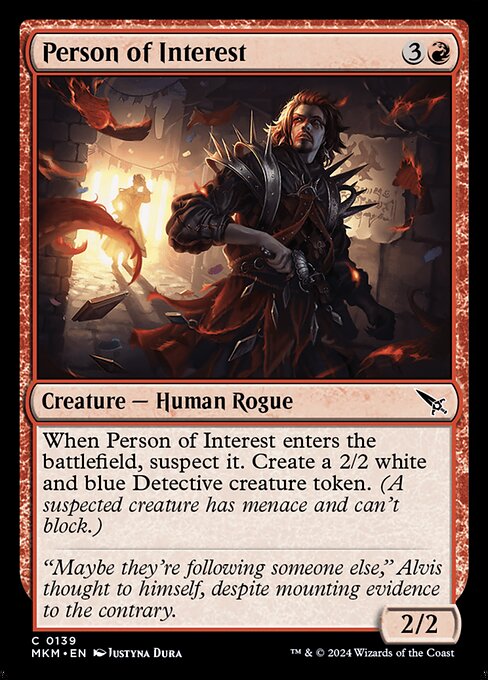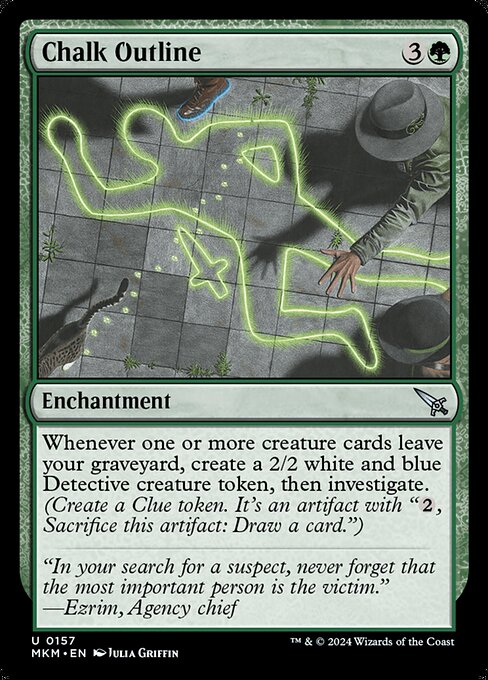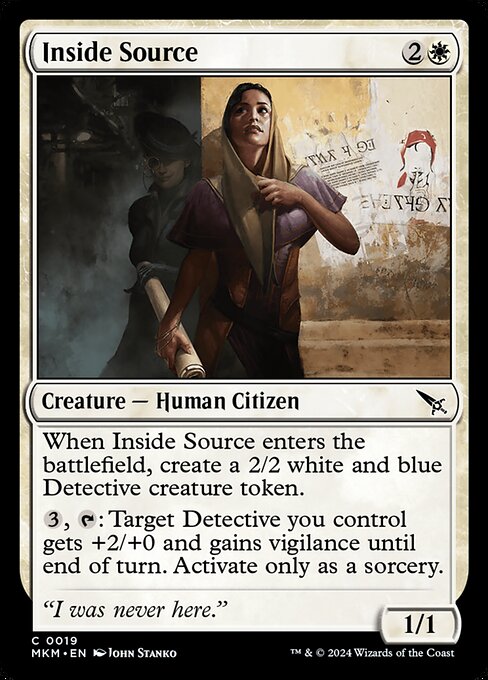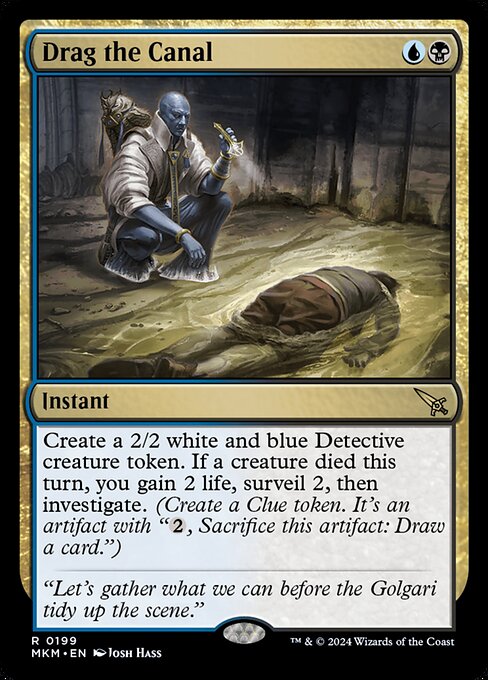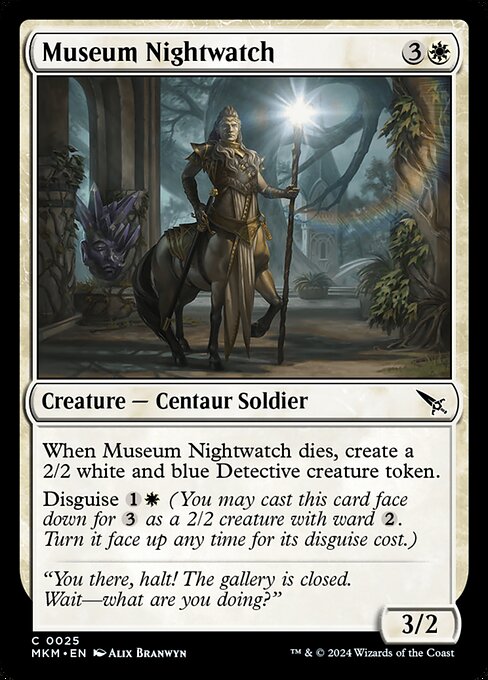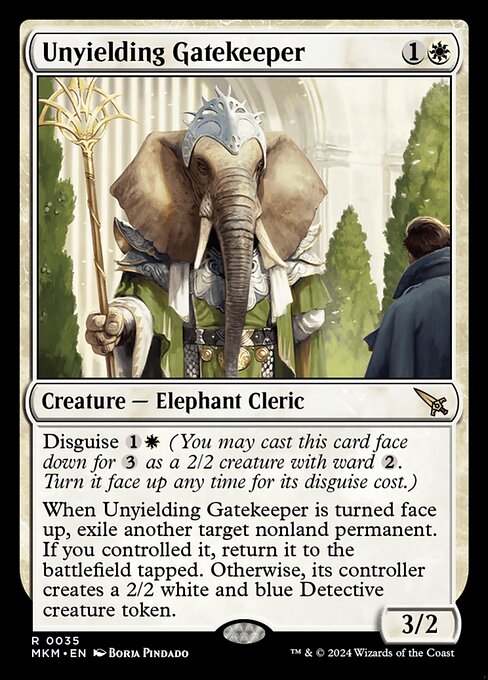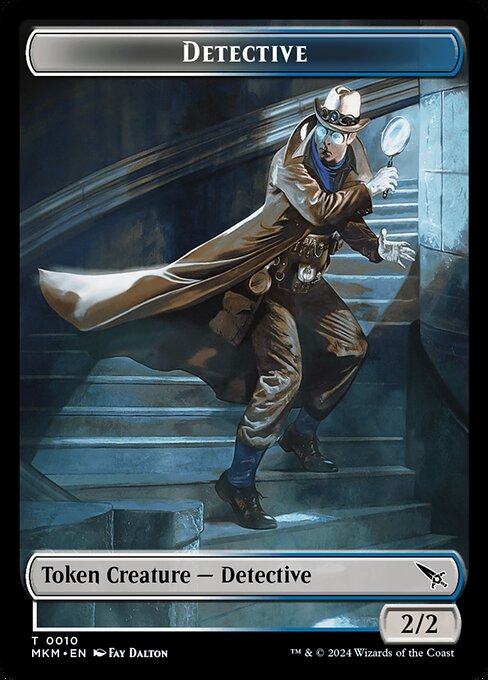standard
future
historic
gladiator
pioneer
explorer
modern
legacy
pauper
vintage
penny
commander
brawl
alchemy
paupercommander
duel
oldschool
premodern
Rulings
Gaining the city’s blessing after a Detective you control has become blocked won’t cause that Detective to become unblocked.
If you cast a spell with ascend, you don't get the city’s blessing until it resolves. Players may respond to that spell by trying to change whether you get the city’s blessing.
Ascend on a permanent isn’t a triggered ability and doesn’t use the stack. Players can respond to a spell that will give you your tenth permanent, but they can’t respond to you getting the city’s blessing once you control that tenth permanent. This means that if your tenth permanent is a land you play, players can’t respond before you get the city’s blessing.
A permanent is any object on the battlefield, including tokens and lands. Spells and emblems aren’t permanents.
Once you have the city’s blessing, you have it for the rest of the game, even if you lose control of some or all your permanents. The city’s blessing isn’t a permanent itself and can’t be removed by any effect.
If your tenth permanent enters the battlefield and then a permanent leaves the battlefield immediately afterwards (most likely due to the “legend rule” or due to being a creature with 0 toughness), you get the city’s blessing before it leaves the battlefield.
If you control ten permanents but don’t control a permanent or resolving spell with ascend, you don’t get the city’s blessing. For example, if you control ten permanents, lose control of two, then cast Detective of the Month, you won’t have the city’s blessing.
If you cast a spell with ascend, you don't get the city’s blessing until it resolves. Players may respond to that spell by trying to change whether you get the city’s blessing.
Ascend on a permanent isn’t a triggered ability and doesn’t use the stack. Players can respond to a spell that will give you your tenth permanent, but they can’t respond to you getting the city’s blessing once you control that tenth permanent. This means that if your tenth permanent is a land you play, players can’t respond before you get the city’s blessing.
A permanent is any object on the battlefield, including tokens and lands. Spells and emblems aren’t permanents.
Once you have the city’s blessing, you have it for the rest of the game, even if you lose control of some or all your permanents. The city’s blessing isn’t a permanent itself and can’t be removed by any effect.
If your tenth permanent enters the battlefield and then a permanent leaves the battlefield immediately afterwards (most likely due to the “legend rule” or due to being a creature with 0 toughness), you get the city’s blessing before it leaves the battlefield.
If you control ten permanents but don’t control a permanent or resolving spell with ascend, you don’t get the city’s blessing. For example, if you control ten permanents, lose control of two, then cast Detective of the Month, you won’t have the city’s blessing.
Rulings
Gaining the city’s blessing after a Detective you control has become blocked won’t cause that Detective to become unblocked.
If you cast a spell with ascend, you don't get the city’s blessing until it resolves. Players may respond to that spell by trying to change whether you get the city’s blessing.
Ascend on a permanent isn’t a triggered ability and doesn’t use the stack. Players can respond to a spell that will give you your tenth permanent, but they can’t respond to you getting the city’s blessing once you control that tenth permanent. This means that if your tenth permanent is a land you play, players can’t respond before you get the city’s blessing.
A permanent is any object on the battlefield, including tokens and lands. Spells and emblems aren’t permanents.
Once you have the city’s blessing, you have it for the rest of the game, even if you lose control of some or all your permanents. The city’s blessing isn’t a permanent itself and can’t be removed by any effect.
If your tenth permanent enters the battlefield and then a permanent leaves the battlefield immediately afterwards (most likely due to the “legend rule” or due to being a creature with 0 toughness), you get the city’s blessing before it leaves the battlefield.
If you control ten permanents but don’t control a permanent or resolving spell with ascend, you don’t get the city’s blessing. For example, if you control ten permanents, lose control of two, then cast Detective of the Month, you won’t have the city’s blessing.
If you cast a spell with ascend, you don't get the city’s blessing until it resolves. Players may respond to that spell by trying to change whether you get the city’s blessing.
Ascend on a permanent isn’t a triggered ability and doesn’t use the stack. Players can respond to a spell that will give you your tenth permanent, but they can’t respond to you getting the city’s blessing once you control that tenth permanent. This means that if your tenth permanent is a land you play, players can’t respond before you get the city’s blessing.
A permanent is any object on the battlefield, including tokens and lands. Spells and emblems aren’t permanents.
Once you have the city’s blessing, you have it for the rest of the game, even if you lose control of some or all your permanents. The city’s blessing isn’t a permanent itself and can’t be removed by any effect.
If your tenth permanent enters the battlefield and then a permanent leaves the battlefield immediately afterwards (most likely due to the “legend rule” or due to being a creature with 0 toughness), you get the city’s blessing before it leaves the battlefield.
If you control ten permanents but don’t control a permanent or resolving spell with ascend, you don’t get the city’s blessing. For example, if you control ten permanents, lose control of two, then cast Detective of the Month, you won’t have the city’s blessing.
Your collection? Your decks?
Want to manage your collection and/or create decks?
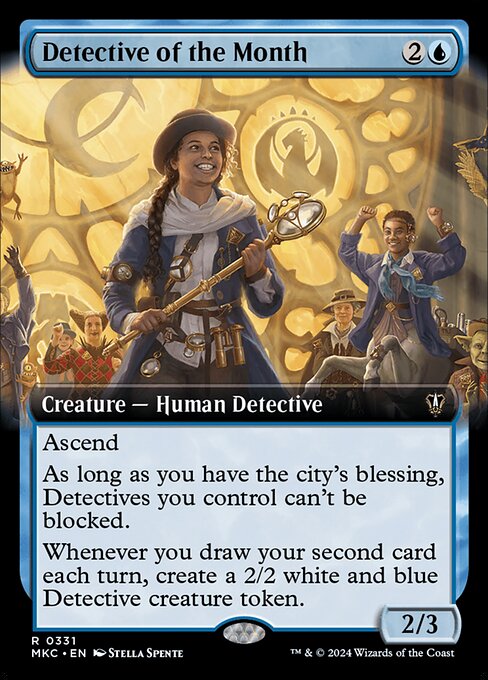

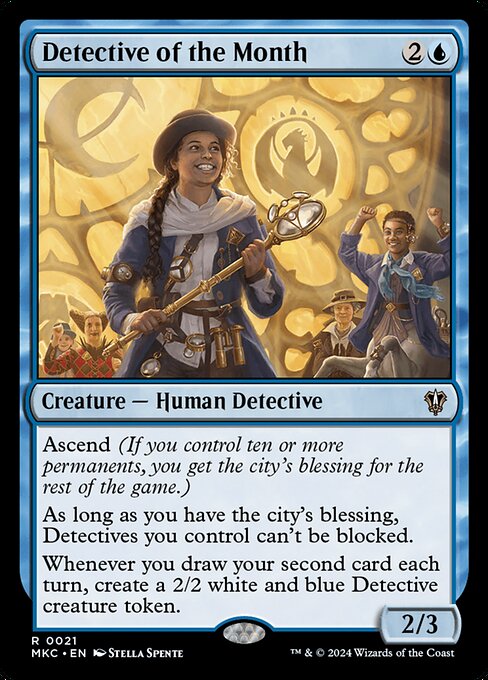
 0
0
 0.27€
0.27€
